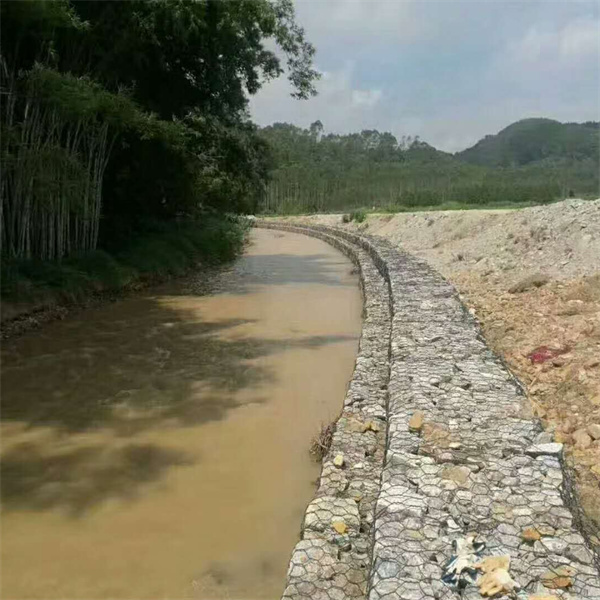ഡിസം . 09, 2024 17:46 Back to list
Exploring the Benefits and Uses of Gabion Boxes in China
The Growing Popularity of China Gabion Boxes in Modern Construction
In recent years, gabion boxes have gained significant traction in the construction and landscaping industries worldwide, with China emerging as one of the leading manufacturers and suppliers of these versatile products. Made from wire mesh and filled with natural stones, concrete, or other materials, gabion boxes serve a variety of purposes including erosion control, structural support, and aesthetic landscaping. This article explores the numerous advantages of gabion boxes, their applications, and the reasons behind their popularity in China and beyond.
Understanding Gabion Boxes
Gabion boxes are wire cages that are filled with rocks or stones, creating robust structures suitable for various engineering projects. They come in various shapes and sizes and can be used as retaining walls, sound barriers, or decorative elements in gardens and parks. The word gabion originates from the Italian word gabbione, which means big cage. The simplicity of design coupled with practical functionality makes gabion boxes an appealing choice for contractors and landscapers alike.
Advantages of Gabion Boxes
One of the primary benefits of using gabion boxes is their ability to effectively manage and control erosion. Their permeable nature allows water to flow through the structure, reducing the chances of water buildup and subsequent soil erosion. This characteristic makes them particularly useful in areas prone to heavy rainfall or flooding.
Another advantage is their cost-effectiveness. Gabion boxes are typically less expensive to install than traditional concrete or stone walls. The materials used to fill the boxes are often locally sourced, further reducing transportation costs and the overall environmental impact. Furthermore, the installation process is relatively straightforward, which can significantly cut down on labor costs and project timelines.
Durability is another critical factor contributing to the popularity of gabion boxes. The steel wire mesh used to construct these boxes is typically galvanized or coated to prevent rusting and corrosion, ensuring the longevity of the structure. Additionally, the natural stone filling is robust and weather-resistant, enabling gabion boxes to withstand harsh environmental conditions.
china gabion boxes

Gabion boxes also boast aesthetic versatility. Available in a range of colors and sizes, they can be customized to suit various architectural styles and landscape designs. Whether utilized as decorative garden features or substantial retaining walls, gabion boxes can enhance the visual appeal of any environment.
Applications of Gabion Boxes
Gabion boxes are utilized in a myriad of applications across various sectors, including civil engineering, environmental protection, and landscape architecture. In civil engineering, they are commonly employed in the construction of retaining walls to stabilize slopes and prevent landslides. Their use in erosion control is widespread, especially along riverbanks, coastlines, and highways where erosion poses a significant risk.
In terms of environmental preservation, gabion boxes can serve as effective solutions for managing sediment flow and improving water quality. They help create habitats for aquatic life and promote biodiversity by utilizing natural materials in their construction.
Landscapers and architects have also embraced gabion boxes to create striking visual features to enhance outdoor spaces. They can be used to build seating areas, planters, or sculptures, allowing for greater creativity and innovation in design.
The Future of Gabion Boxes in China
As the construction industry in China continues to evolve, the demand for sustainable and efficient building materials is increasing. Gabion boxes align perfectly with this trend due to their eco-friendly nature and minimal environmental footprint. Additionally, China’s extensive manufacturing capabilities allow for mass production, making gabion boxes readily available at competitive prices.
In conclusion, the rising popularity of gabion boxes in China can be attributed to their multitude of advantages, including cost-effectiveness, durability, and environmental benefits. As urbanization and infrastructure development continue to grow, the use of gabion boxes will likely become even more prevalent in both construction and landscaping projects. By embracing this innovative and versatile product, builders and designers can create functional and aesthetically pleasing structures that stand the test of time.
-
Why PVC Coated Gabion Mattress Is the Best Solution for Long-Term Erosion Control
NewsMay.23,2025
-
Gabion Wire Mesh: The Reinforced Solution for Modern Construction and Landscape Design
NewsMay.23,2025
-
Gabion Wall: The Flexible, Seismic-Resistant Solution for Modern Landscaping and Construction
NewsMay.23,2025
-
Gabion Wall Solutions: The Durable, Decorative, and Affordable Choice for Every Landscape
NewsMay.23,2025
-
Gabion Basket: The Durable and Flexible Alternative to Traditional Retaining Walls
NewsMay.23,2025
-
Gabion Basket: The Proven Solution for Slope Stability and Flood Control
NewsMay.23,2025
-
Versatility of Chain Link Fence Gabion
NewsMay.13,2025






